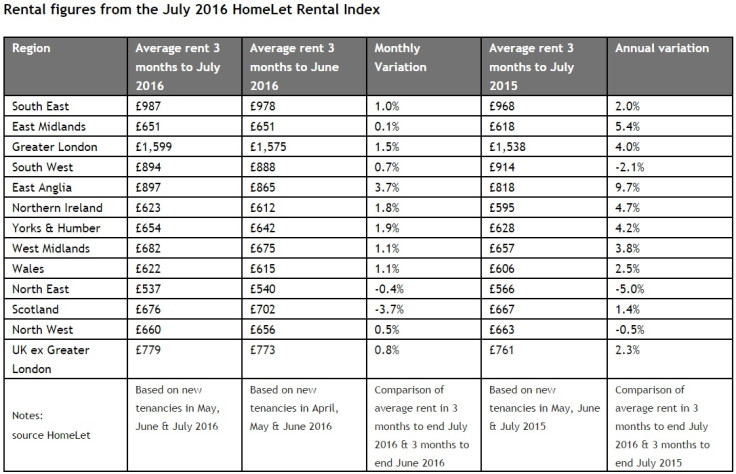Brexit uncertainty does little to curb the rising cost of rents
HomeLet says average UK rent rose 2.3% over the year to July 2016, reaching £779 a month.
Landlords were still able to demand higher rents from tenants despite the wider economic and political uncertainty surrounding the EU referendum on 23 June, in which the country voted for Brexit.
Some economists expect a recession as a consequence and the Bank of England has already slashed interest rates and boosted its stimulus package by £170bn in response. But, in its monthly index for July, HomeLet said that the average rent for the UK, excluding London, grew by 0.8% to £779 a month. Over the year, the rise was 2.3%.
Rents were growing fastest on a month-on-month basis in East Anglia, with the average rising 3.7% to £897 in July. Year-on-year, this was a 9.7% increase. The highest average rent was in London at £1,599 after a monthly rise of 1.5% and an annual rise of 4%. The lowest was in the North East at £537 after falling -0.4% over the month and -5% over the year.
"Ultimately, rents will be determined by supply and demand in the private rental sector; what we know here is that population growth will continue to increase demand, and that the housing stock isn't growing quickly enough to meet that demand," said Martin Totty, chief executive of Barbon Insurance Group.
"However, with rents ultimately limited to a tenant's ability to pay, rents are likely to continue to climb, albeit at the slowing pace noted most recently... We won't know exactly how Brexit is impacting the private rental sector and it will be several months yet until we see some clearly established trends in the marketplace."

© Copyright IBTimes 2024. All rights reserved.






